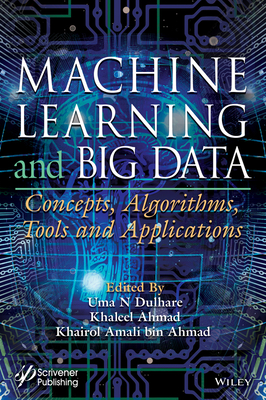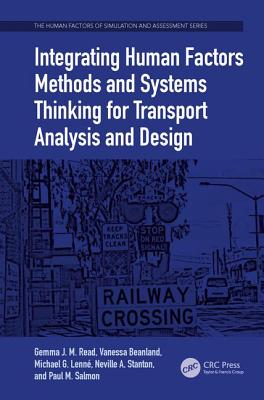Advances in Applied Human Modeling and Simulation, 2/e (Hardcover)
暫譯: 應用人類模型與模擬的進展,第二版(精裝本)
Vincent G. Duffy
- 出版商: CRC
- 出版日期: 2012-07-09
- 售價: $2,520
- 貴賓價: 9.5 折 $2,394
- 語言: 英文
- 頁數: 578
- 裝訂: Hardcover
- ISBN: 1439870314
- ISBN-13: 9781439870310
-
相關分類:
Machine Learning
立即出貨 (庫存=1)
買這商品的人也買了...
-
 基礎資料結構 ─ 使用 C (Fundamentals of Data Structures in C, 2/e)
基礎資料結構 ─ 使用 C (Fundamentals of Data Structures in C, 2/e)$790$750 -
 Bayesian Methods for Data Analysis, 3/e (Hardcover)
Bayesian Methods for Data Analysis, 3/e (Hardcover)$4,440$4,218 -
 The Art of Systems Architecting, 3/e (Hardcover)
The Art of Systems Architecting, 3/e (Hardcover)$5,960$5,662 -
 Handbook of Natural Language Processing, 2/e (Hardcover)
Handbook of Natural Language Processing, 2/e (Hardcover)$4,275$4,061 -
 Graphs & Digraphs, 5/e (Hardcover)
Graphs & Digraphs, 5/e (Hardcover)$3,720$3,534 -
 MATLAB Primer, 8/e (Paperback)
MATLAB Primer, 8/e (Paperback)$970$921 -
 Computer Network Time Synchronization: The Network Time Protocol on Earth and in Space, 2/e (Hardcover)
Computer Network Time Synchronization: The Network Time Protocol on Earth and in Space, 2/e (Hardcover)$4,140$3,933 -
 Hadoop 技術手冊, 2/e (Hadoop: The Definitive Guide, 2/e)
Hadoop 技術手冊, 2/e (Hadoop: The Definitive Guide, 2/e)$880$695 -
 Android 4.X 手機/平板電腦程式設計入門、應用到精通, 2/e (適用 Android 1.X~4.X)
Android 4.X 手機/平板電腦程式設計入門、應用到精通, 2/e (適用 Android 1.X~4.X)$520$410 -
 Antipatterns: Managing Software Organizations and People, 2/e (Hardcover)
Antipatterns: Managing Software Organizations and People, 2/e (Hardcover)$2,475$2,351 -
 2W Solar Panel
2W Solar Panel$300$294 -
 精通正規表達式, 3/e (Mastering Regular Expressions, 3/e)
精通正規表達式, 3/e (Mastering Regular Expressions, 3/e)$780$616 -
實戰雲端作業系統建置與維護-VMware vSphere 5 虛擬化全面啟動
$680$537 -
 深入淺出行動網站開發 (Head First Mobile Web)
深入淺出行動網站開發 (Head First Mobile Web)$680$537 -
 Statistical Process Control, 6/e (Paperback)
Statistical Process Control, 6/e (Paperback)$2,400$2,280 -
JavaScript & jQuery: The Missing Manual 國際中文版, 2/e
$580$458 -
 PHP 大師-寫出頂尖的程式碼 (PHP Master: Write Cutting Edge Code)
PHP 大師-寫出頂尖的程式碼 (PHP Master: Write Cutting Edge Code)$450$355 -
 Knowledge Management Handbook: Collaboration and Social Networking, 2/e (Hardcover)
Knowledge Management Handbook: Collaboration and Social Networking, 2/e (Hardcover)$3,150$2,992 -
 Joomla! 2.5 素人架站計畫
Joomla! 2.5 素人架站計畫$560$442 -
 打卡還不簡單?APP 地圖定位模組設計實例 (iPhone/Android 雙效開發)
打卡還不簡單?APP 地圖定位模組設計實例 (iPhone/Android 雙效開發)$560$442 -
 HTML5: Designing Rich Internet Applications, 2/e (Paperback)
HTML5: Designing Rich Internet Applications, 2/e (Paperback)$1,485$1,410 -
 Linear Synchronous Motors: Transportation and Automation Systems, 2/e (Hardcover)
Linear Synchronous Motors: Transportation and Automation Systems, 2/e (Hardcover)$11,370$11,142 -
![ASP.NET 4.5 專題實務 [I]-VB 入門實戰篇-cover](https://cf-assets1.tenlong.com.tw/images/71942/medium/9789572240724_bc.jpg) ASP.NET 4.5 專題實務 [I]-VB 入門實戰篇
ASP.NET 4.5 專題實務 [I]-VB 入門實戰篇$780$390 -
 達標!Windows 8
達標!Windows 8$520$442 -
 Computational Methods for Electromagnetic and Optical Systems, 2/e (Hardcover)
Computational Methods for Electromagnetic and Optical Systems, 2/e (Hardcover)$5,980$5,681
相關主題
商品描述
An examination of the various types of human-modeled technology, Advances in Applied Human Modeling and Simulation not only covers the type of models available, but how they can be applied to solve specific problems. These models provide a representation of some human aspects that can be inserted into simulations or virtual environments and facilitate prediction of safety, satisfaction, usability, performance, and sustainability.
Topics include:
- Anthropometry and human functional data
- Biomechanics, occupational safety, comfort and discomfort
- Biometric authentications
- Driving safety and human performance
- Enhancing human capabilities through aids or training
- Fuzzy systems and neural computing
- Human behavior and risk assessment modeling
- Integrating software with humans and systems
- International cooperation in education and engineering research
- Intelligent agents in decision training
- Intelligent data and text mining
- Machine learning and human factors
- Modeling physical aspects of work
- Monitoring systems and human decision
- Psychophysiological indicators of emotion
- Resilience engineering and human reliability
- Scenario-based performance in distributed enterprises
- Special populations
- Sustainability, earth sciences and engineering
- System-of-systems architecting and engineering
- Verification and validation
- Virtual interactive design and assessment
The math and science provides a foundation for visualizations that can facilitate decision making by technical experts, management or those responsible for public policy. In considering a systems perspective and decisions that affect performance, these models provide opportunities for an expanded role of engineers and HF/E specialists to meet technical challenges worldwide. They can also be used to improve time-to-market, increase safety and ultimately the effectiveness of an organization. The book focuses on applications of these newly developed models and predictive capabilities useful to human factors and ergonomics engineers, cognitive engineers, human computer interaction engineers, human performance modeling engineers, and students in related fields.
商品描述(中文翻譯)
《應用人類建模與模擬的進展》探討了各種人類建模技術,不僅涵蓋了可用模型的類型,還介紹了它們如何應用於解決特定問題。這些模型提供了某些人類特徵的表示,可以插入模擬或虛擬環境中,並促進安全性、滿意度、可用性、性能和可持續性的預測。
主題包括:
- 人體測量學與人類功能數據
- 生物力學、職業安全、舒適與不適
- 生物識別認證
- 駕駛安全與人類表現
- 通過輔助工具或訓練增強人類能力
- 模糊系統與神經計算
- 人類行為與風險評估建模
- 將軟體與人類及系統整合
- 教育與工程研究的國際合作
- 決策訓練中的智能代理
- 智能數據與文本挖掘
- 機器學習與人因工程
- 工作的物理方面建模
- 監控系統與人類決策
- 情緒的心理生理指標
- 韌性工程與人類可靠性
- 分散企業中的情境基礎表現
- 特殊族群
- 可持續性、地球科學與工程
- 系統之系統的架構與工程
- 驗證與確認
- 虛擬互動設計與評估
數學與科學為可視化提供了基礎,這些可視化能夠促進技術專家、管理層或負責公共政策的人士的決策。在考慮系統觀點及影響性能的決策時,這些模型為工程師和人因/人體工學專家擴展角色提供了機會,以應對全球的技術挑戰。它們還可以用來改善上市時間、提高安全性,最終提升組織的效能。本書專注於這些新開發模型及其預測能力的應用,對人因工程、認知工程、人機互動工程、人類表現建模工程師及相關領域的學生均有幫助。













